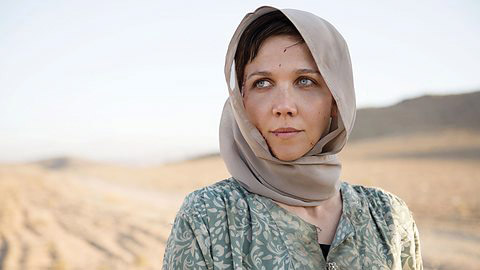In what is supposedly the second golden age of television, the BBC innovates in a market saturated with conventional and mediocre American television.Of course, there are exceptions, such as HBO and Netflix, which jettison the traditional 22 or 42-minute episode format in favor of a mini-series structure. Yet despite these few award-winning North American programs, there exist many novel, creative BBC alternatives that push gender and intellectual boundaries in ways that acclaimed American networks—ABC, FX, CBS, AMC—generally choose not to. In many ways, the BBC is an undervalued HBO: It, too, produces ‘mini-series’ that are written and produced for an intelligent audience that values witty, inventive television over the contrasting formulaic convention.
One of the major distinctions between much of North American and BBC programming is the overall quality of the writing. Many American television writers are inclined to write for a high school intellect level in order to appeal to a broader viewership, which necessitates simplistic dialogue and plot; but BBC writers have no such constraints, and their programs are refreshingly complex. The BBC deviates from many implicitly understood tropes by frequently ‘killing off’ crucial and beloved characters, and creating complex relationships that more closely mirror reality. In the 2014 miniseries The Honourable Woman, when one of the characters refuses the advances of another, they continue with an excruciatingly awkward conversation. Similarly complex romantic or conspicuously non-romantic relationships characterize many other BBC shows, which contrasts with often absurdly sexualized American television.
The BBC is far more willing to make more unexpected, unpopular decisions in order to keep television exciting. In House, for example, we know that the patient will be in critical condition right before commercial break but will make it in the end. We can instead expect the unexpected with the BBC, a rare broadcaster that maintains the ability to surprise an increasingly jaded audience.
The BBC likewise challenges television norms through its adroit and multi-layered depictions of women. Although there exist popular American shows with female protagonists, these heroines pale in comparison to their BBC counterparts. BBC programming is defying traditional male-dominated programming as seen in The Honourable Woman, where Maggie Gyllenhaal portrays a powerful single woman whose focus is more political than personal, amongst a cast of strong and complex female characters. Notably, most American-produced programs that have received high ratings in the past couple years—True Detective, Breaking Bad, Hannibal, Game of Thrones—either star few women or focus on their sexual appeal.
The diversity of female characters on BBC programs extends to Downton Abbey and Luther, two critically acclaimed and widely popular shows. Like Boardwalk Empire, Downton Abbey focuses on the time when women had fewer liberties, but does not do so at the expense of well-written female characters. Similarly, in Luther, starring Idris Elba, there are strong female characters: The protagonist’s boss, his ex-wife, his suspect, and his future friend—none of whom exist for purely aesthetic purposes. Luther’s female antagonist Alice Morgan, portrayed by Ruth Wilson and a self-described “malignant narcissist,” is fabulously calculating and complex in ways that I haven’t seen women depicted in American cinema. BBC television offers a successful marriage between modern portrayals of women and quality TV, which is a rarity in American television.
Although a few American media giants are beginning to offer quality programming with more complex characters, plot lines, and formats, they still cling to remnants of past stereotypes, while the majority of production companies maintain the status quo in television. If you’re tired of American programing that lacks meaningful authenticity, artistry, and diversity, tune in to the BBC.









